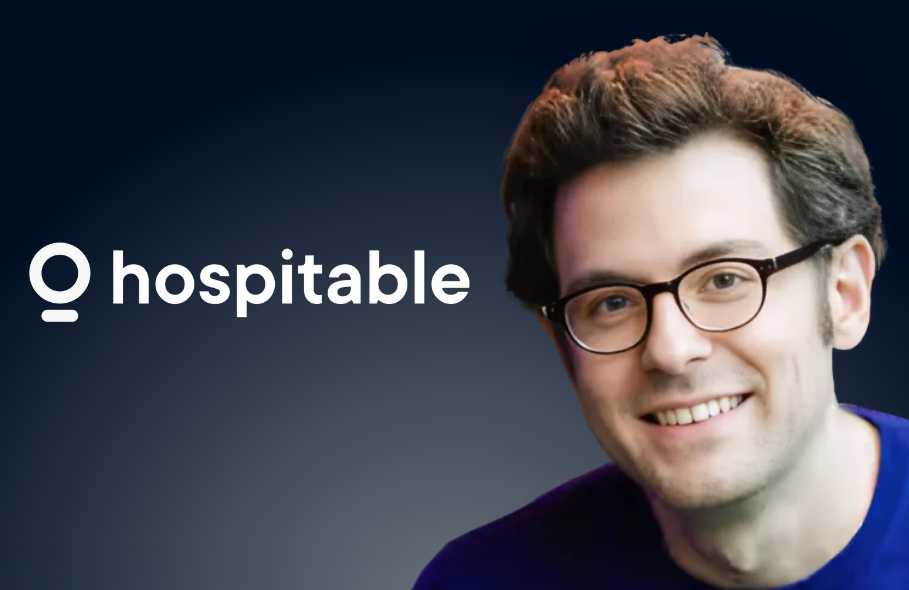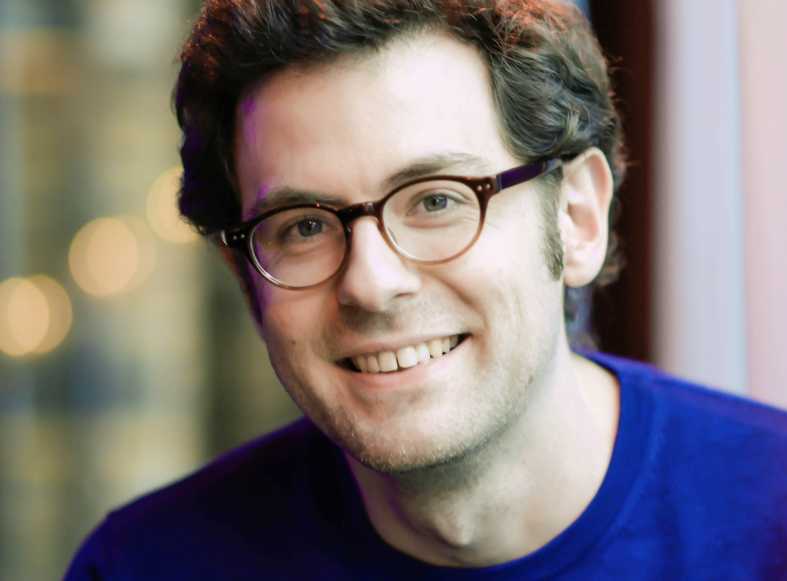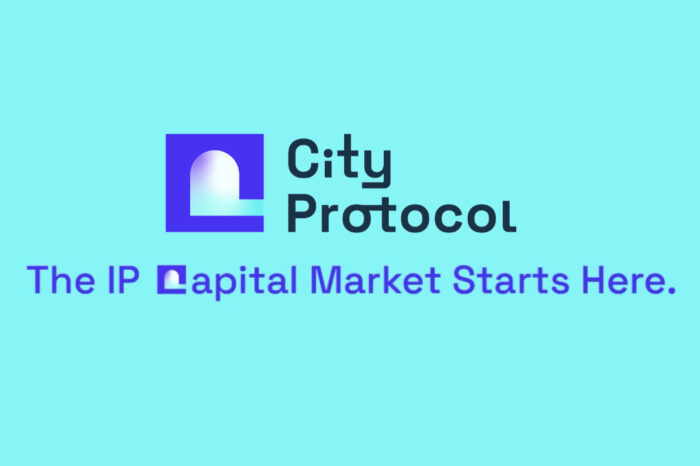He raised $1.5M from his own customers. Now, Hospitable’s founder is proving startups don’t need VCs to scale

When most startup founders chase venture capital to fuel growth, Pierre-Camille Hamana went in the opposite direction. The founder of Hospitable, a property management software for hosts and property managers in the short-term rental space, didn’t pitch investors or hire bankers. Instead, he invited the very people who use his product every day to invest in the company’s future.
That bet paid off. In just a few weeks, 100 customers and employees from 32 countries poured more than $1.5 million into the company — a round that has since surpassed $1.8 million. It’s a rare case of a profitable SaaS startup raising directly from its users, signaling a growing shift in how founders think about control, capital, and community.
Founded in 2016 to automate Hamana’s own spare-room rental in Brussels, Hospitable has quietly grown into one of the leading platforms in the short-term-rental space. The company now supports over 18,000 active customers in 119 countries, manages 350,000 properties, and powers more than 16 million automated guest messages each year. It recently crossed $22 million in annual recurring revenue, has maintained 17 months of profitability, and operates with a fully remote team of 111 people spread across 31 countries.
The Founder Who Raised $1.5M From His Own Customers — And What it Says About the Future of Startup Funding
For most startups, those numbers would be a green light to raise a traditional Series A. Instead, Hamana took a different route — one that keeps Hospitable independent, profitable, and aligned with the people who made it successful.
“Hospitable’s community round attracted 100 customers and employees from 32 countries,” Hamana said in the announcement. “It gives our users and team members a direct stake in the company they’ve helped build.”
The funds will accelerate Hospitable’s product roadmap, including a $250,000 agreement with OpenAI to deepen its AI-driven automation tools, expand platform reliability, and support hosts worldwide.
For Hamana, this wasn’t just a funding round. It was a statement that software can be built and owned by the people who actually depend on it.
In a recent conversation with TechStartups.com, Pierre-Camille Hamana opened up about why he turned down venture money, how customer ownership reshaped Hospitable, and what the future of founder sovereignty might look like.
Q&A with Pierre-Camille Hamana, Founder and CEO of Hospitable

1. You recently raised $1.5 million from your own customers and employees — a round that’s already surpassed $1.8 million. What inspired you to open up investment to your community rather than follow the traditional venture route?
“I’ve always believed that Hospitable should be built for the people who use it, and by the people who use it. Traditional venture capital often means giving up control and adding layers of decision-making, like board meetings and shareholders who might not share the founder’s vision. I’ve seen what happens when private equity takes over; companies that were once founder-led and innovative start focusing more on protecting assets and chasing short-term returns.
Our community raise is the opposite of that. It gives our customers, team members, and supporters from across the hospitality space the chance to invest directly in the company they have helped shape. This is not about chasing the biggest valuation. It is about creating real alignment. When your customers and employees are also your investors, they are not just cheering from the sidelines, they are part of the journey. That kind of alignment feels right today, and it will feel even better years from now when we share the rewards of building something meaningful together.”
2. Many founders see VC funding as the default path to scale. Why was it important for you to build Hospitable on your own terms, and what do you think people most often misunderstand about growing without outside investors?
“People often assume that building a successful SaaS company requires venture funding, and that bootstrapping limits your potential. I see it differently. We have grown Hospitable to a $22 million annual run rate and stayed profitable for more than 17 months, all without outside investors. That independence lets us make decisions based on what is right for our customers and our team, not on what looks good in a pitch deck.
The biggest misconception about not raising venture capital is that it means thinking small. In reality, it means thinking long-term. We are not focused on the next funding round or someone else’s return expectations. We are focused on solving real problems for hosts, taking smart risks, and continuing to innovate, all while keeping full control of our own path.”
3. Community investment is still rare in SaaS. Why do you think this model could become more relevant to founders in the future, and what might it signal for the wider startup ecosystem?
“What we are doing with the $HOST Token is still unconventional, but I believe it highlights something important. Founders today have more ways to raise capital directly from the people who believe in their mission. Through tokenized equity, you can give investors, many of whom are also your users, a genuine stake in your company’s success without giving up governance or creative control.
For us, this approach offers a middle ground. We remain private and founder-led, while still giving our community and team the chance to benefit from liquidity and shared upside. I believe more founders will recognise the value in that, especially those who want to grow sustainably, stay independent, and share success with the people who helped make it possible.
Lastly, I find community investments inevitable. Capitalism used to be about distributing the risks, but with the advent of such much capital concentration, especially in the tech industry, a rejuvenated capitalism has to also distribute the upside to a larger community.”
4. Inviting customers and employees to invest is a unique step. How has that changed your relationship with users, your team, and the way you think about Hospitable’s roadmap?
“Our customers have always had a unique relationship with Hospitable and with our team. From the start, we have made transparency part of our identity through our public bi-weekly Town Halls, open communication channels, and genuine openness to feedback. Many of our best ideas have grown out of those conversations.
What has changed with the community raise is the depth of that relationship. By allowing our customers and employees to invest, we have turned mutual trust into shared ownership. It is no longer just about listening to feedback; it is about building the future of Hospitable together.
Our investors, many of whom are also our customers, now have access to our community and internal Slack spaces, where they can engage with our team and see our thinking in real time. For our employees, this sense of ownership has been equally powerful. Everyone on the team has an equity incentive, and the $HOST Token gives them a real stake in our success.
For me personally, this shift has strengthened my sense of accountability. We already operated with full transparency, but now we publish monthly investor updates. It has made us more disciplined and more connected to the people who believe in us most — the ones who helped us get here in the first place.”
5. You started Hospitable as a side project to solve your own hosting frustrations, and it’s since grown into a global software platform. What are some of the biggest lessons you’ve learned from scaling independently?
“One of the biggest lessons has been learning to turn limitations into strengths. When you are bootstrapped, every constraint pushes you to think more creatively. We have always tried to do things differently, not to be contrarian, but because it feels true to who we are.
Another important lesson is patience. Growing independently means you do not have the luxury of spending freely, so you learn to focus on what really matters: solving your customers’ problems, staying profitable, and building a business that can last.
And finally, independence brings clarity. Without outside investors pushing for short-term results, we can take the kinds of entrepreneurial risks that others cannot. That is where real innovation happens.”
6. What would you say to other founders weighing control against capital — and do you see independence as a long-term competitive advantage for Hospitable?
“There has never been a better time to bootstrap a company, iterate faster than the competition, and discover product-market fit with a customer segment. An important decision for founders comes after the first revenue, whether to continue on a sovereign mode or being backed by other people’s money; that is probably one of the loneliest, most impactful decisions for a founding team.
For me, sovereignty has always been more valuable than capital. Capital often means reverting to what is known, using others’ playbook; sovereignty means maximizing its differentiation and creative power.
The decision to remain independent is the only one with optionality. Once taking the investment route, you commit yourself to raise the next round. Staying sovereign longer still keeps a door open to raising capital or getting liquidity later. In fact, the entire growth equity industry is about investing into later bootstrapped companies!
Independence is a real competitive advantage for us. It allows us to build for the long term, stay close to our customers, and keep innovating under the pressure of our own ambition. And it is far more rewarding to share that journey, and ultimately the success, with our community of hosts and our team rather than with a venture fund. That independence shapes everything we do at Hospitable and keeps us focused on building something we truly believe in.”
Closing Thought
In an age obsessed with valuations, Pierre-Camille Hamana is building something rarer: alignment.
And if he’s right, the next wave of startup funding may come not from Sand Hill Road — but from the people who believe in the product most.




